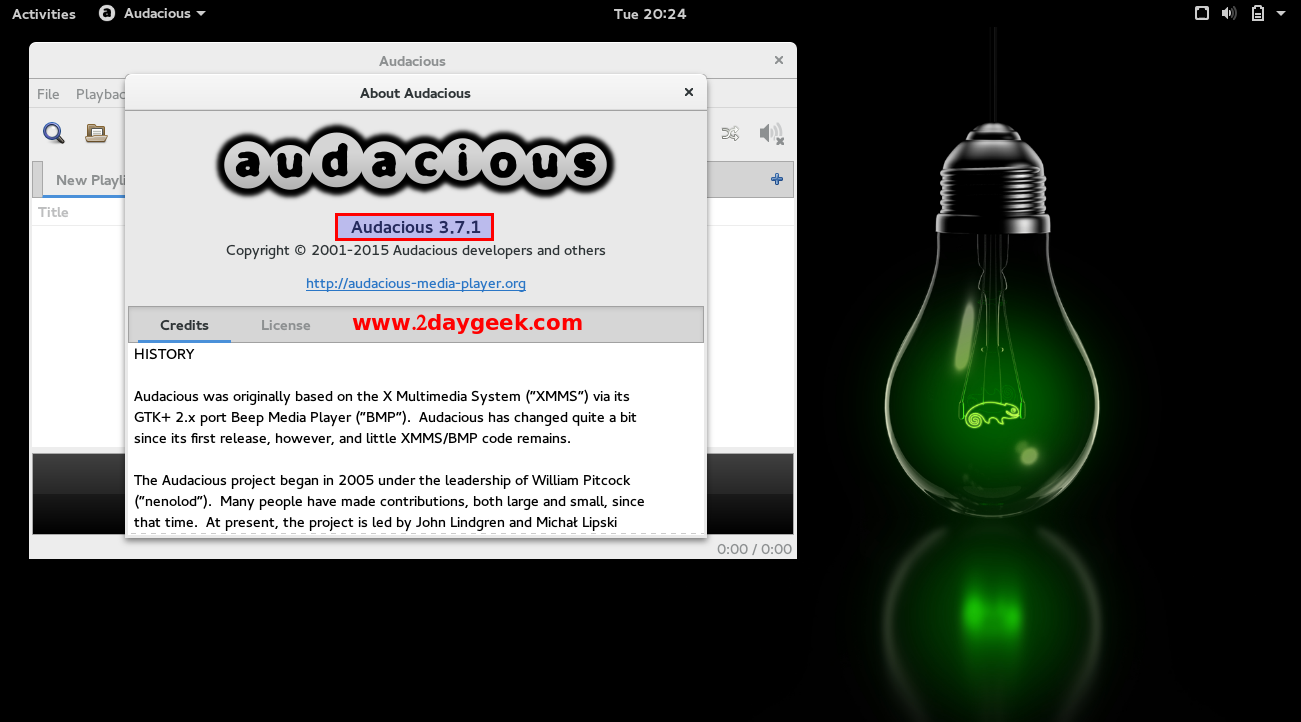Audacious is a free and open source audio player with a focus on low resource use, high audio quality, and support for a wide range of audio formats. Its fork from Beep Media Player and based on GTK+ 3.x toolkit. Optionally you can install QT based interface while compile the package using ./configure option. The latest version of Audacious 3.7.2 released on March 28, 2016.
Below list of Bugs has been fixed in Audacious 3.7.2 Release
- Cuesheet support issue: ‘Album Title’ missing (replaced with current directory name) when we adding songs from cue files to play list
- Audacious crashes on missing .wvc files for hybrid wavpack files
- audacious -j option does not open jump-to-file dialog
- scrobbler complains of network problem when checking permission on Majeia system
- GCC 6 fix for JACK plugin
- Network connection dropped then resumed, but Audacious does not refresh status
1) Audacious installation in Ubuntu/Linux Mint
Add the below PPA to install Audacious in Ubuntu/Linux Mint.
$ sudo add-apt-repository ppa:nilarimogard/webupd8 $ sudo apt-get update $ sudo apt-get install audacious
2) Audacious installation in Fedora
Audacious player can installed directory from Fedora repository but audacious-plugins not included in Fedora repository. You can install it by adding RPMFusion repositories.
[Fedora 21 and older system] # yum install audacious audacious-plugins-freeworld [Fedora 22 and later system] # dnf install audacious audacious-plugins-freeworld
3) Install Audacious in CentOS/RHEL/ScientificLinux
We can install Audacious in CentOS/RHEL/ScientificLinux system by enabling NUX Dextop Repository.
# yum install audacious audacious-plugins
4) Install Audacious in openSUSE
We can install Audacious in openSUSE system by enabling Packman Repository.
# zypper install audacious

Enjoy…Cool…)



